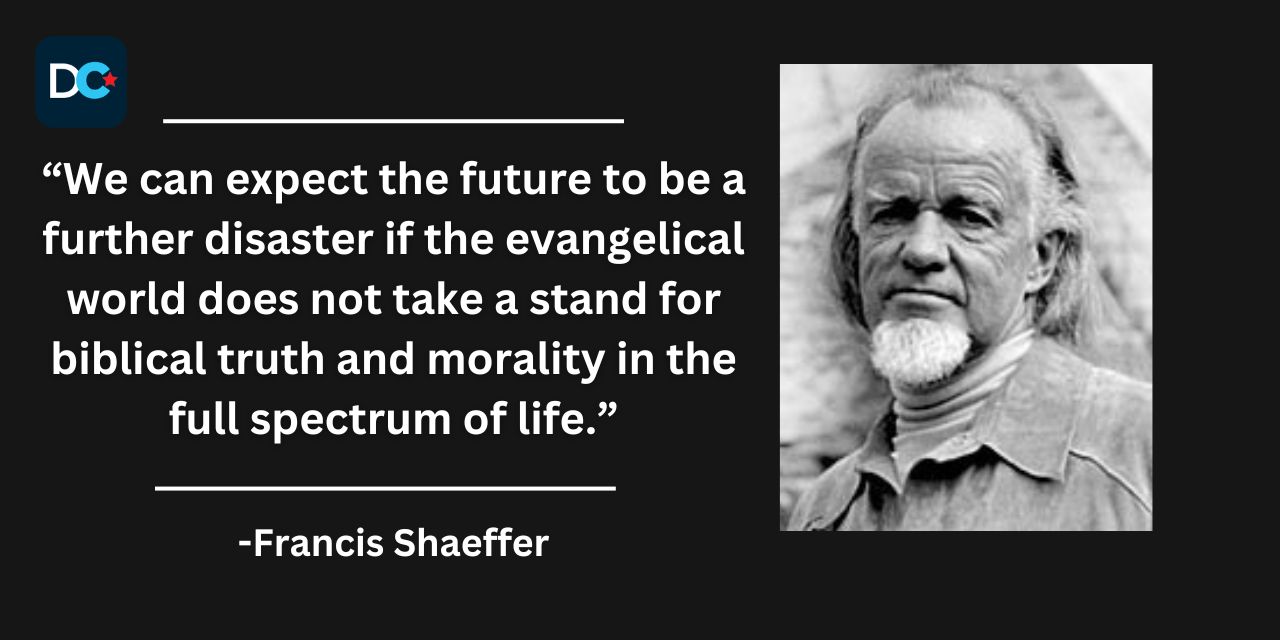As Francis August Schaeffer lay dying back in 1984, fading in and out of consciousness, one of his daughters recalls asking him a profound and poignant question.
“Is it true?” she asked, alluding to the Christian faith that originally grabbed hold of the Presbyterian minister as a senior in high school in 1930.
“It is absolutely true, absolutely sure,” he replied.
There’s no way of knowing if Schaeffer was so sure due to the thinness of the veil between life and death – that he saw something reassuring just before he stepped over to the other side.
Francis Schaeffer, an ordained minister who wrote dozens of books and who founded the L’Abri spiritual centers, was an outspoken evangelist at a time when culture was beginning to slide away from Judeo-Christian beliefs. He became a strong defender of the pre-born in the years following Roe, warning that abortion would usher in a culture of death.
Schaeffer suggested preborn babies weren’t the only ones at risk – but also the elderly and the infirmed. He was right.
What else was he right about?
Plenty.
Consider these five statements made by Francis Schaeffer well over a half-century ago:
“If there is no absolute moral standard, then one cannot say in a final sense that anything is right or wrong … In passing, we should note this curious mark of our own age: the only absolute allowed is the absolute insistence that there is no absolute.”
Studies show that a majority of Americans reject the idea of absolute truth, instead believing in their own shifting standards. “That’s your truth, I have mine” is a common phrase uttered nearly anywhere and everywhere these days. A recent survey indicated that even a minority of evangelical Christians believe in the existence of absolute truth.
“Truth carries with it confrontation. Truth demands confrontation: loving confrontation, but confrontation, nevertheless. If our reflex action is always accommodation regardless of the centrality of the truth involved, there is something wrong.”
Scripture isn’t soft, and while Jesus was always loving, He didn’t shy away from sharing truth. Neither did John the Baptist, whose entire ministry could be summed up in one word: “Repent!” He saw his role as someone preparing the way for Jesus, and he wasn’t concerned about being well liked.
“Tell me what the world is saying today, and I’ll tell you what the church will be saying in seven years.”
Social media and the internet have likely shrunk that gap by a few years, but the principle remains true. Human nature allows and even invites the erosion of biblical doctrine over time. Consider the long slide of once rock solid mainline Christian denominations, nearly all of which have now caved when it comes to accommodations for aberrant sexual behavior.
“We as Bible-believing evangelical Christians are locked in a battle. This is not a friendly gentleman’s discussion. It is a life and death conflict between the spiritual hosts of wickedness and those who claim the name of Christ.”
Are we taking this present situation seriously, or watching it all unfold as if we’re spectators at a movie theater? Some have shied away from referring to this spiritual conflict as a “battle” – but Scripture is clear that we’re to “Put on the whole armor of God, that you may be able to stand against the schemes of the devil” (Eph. 6:11).
“Where is the clear voice speaking to the crucial issue of the day with distinctly biblical, Christian answers? With tears we must say it is not there and that a large segment of the evangelical world has become seduced by the world spirit of this present age. We can expect the future to be a further disaster if the evangelical world does not take a stand for biblical truth and morality in the full spectrum of life.”
Once more, how seriously we take the times reflects how rooted we are in the reality of God’s story. If Schaeffer’s times were dire, how much closer are we to the deadline today? We can live with confidence in the final outcome, but Christians represent the best hope here on earth to help hold back evil and serve individuals and families in need.
Shortly before he died, someone asked Francis Schaeffer why he chose to be a Christian. He replied, “There’s one reason and only one reason to be a Christian, which is that you’re convinced it is the truth of the universe.”
Schaeffer’s convictions strengthened the witness of countless others, and maybe re-reading his words here will renew and reinvigorate your own.
Image credit: InterVarsity Press






